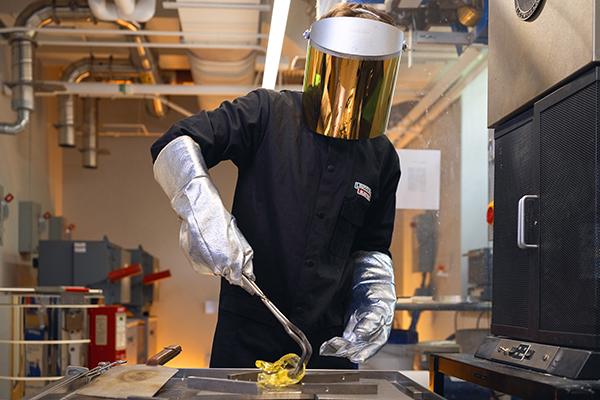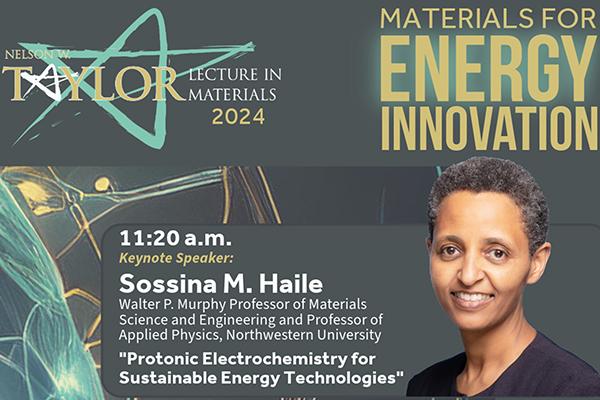For graduate students, college can be a trying and difficult time. Students are often far away from their lifelong support system of families and friends. An effort that began three years ago in the Penn State College of Earth and Mineral Sciences (EMS) is helping to elevate the experiences of graduate students within the college.
Penn State’s total research expenditures reached a record high of $1.337 billion in fiscal year 2023-24, an 8% increase or $99 million jump from the previous year, bringing the research expenditures of external and internal funding to the largest total in the University’s history. For the first time in Penn State’s history, external funding from sponsored grants and contracts surpassed $1 billion — a nearly 11% increase over the last fiscal year.
Robert Hickey, associate professor of materials science and engineering in the College of Earth and Mineral Sciences, will receive the American Physical Society’s 2025 John H. Dillon Medal, the society announced today, Oct. 15.
A recently developed electronic tongue is capable of identifying differences in similar liquids, such as milk with varying water content; diverse products, including soda types and coffee blends; signs of spoilage in fruit juices; and instances of food safety concerns. The team, led by researchers at Penn State, also found that results were even more accurate when artificial intelligence (AI) used its own assessment parameters to interpret the data generated by the electronic tongue.
The 2024 Nelson W. Taylor Lecture in Materials will be held from 8:15 a.m. to 12:15 p.m. on Friday, Oct. 11, in the HUB-Robeson Center’s Heritage Hall at Penn State University Park. The theme of this year’s lecture series is "Materials for Energy Innovation."
In the vast and varied research that comes out of the Department of Materials Science and Engineering (MatSE) at Penn State, there’s one thing that’s even more important than discovery: lab safety.
High-performance ceramics that can withstand extreme temperatures of thousands of degrees Celsius and rapid changes in temperature without degradation enable hypersonic vehicles in aerospace and defense applications, but current technologies limit their production. A new approach, led by Penn State researchers, using laser processing may help produce these materials at lower temperatures, potentially enabling fabrication via 3D printing.
Thermoelectric generators that can convert waste heat to clean energy could soon be as efficient as other renewable energy sources, like solar, according to a team led by Penn State scientists. Using high-entropy materials, the researchers created more efficient thermoelectric materials than previously possible, an advancement that they said could even help make long-distance space exploration possible.
The future of technology has an age-old problem: rust. When iron-containing metal reacts with oxygen and moisture, the resulting corrosion greatly impedes the longevity and use of parts in the automotive industry. While it’s not called “rust” in the semiconductor industry, oxidation is especially problematic in two-dimensional (2D) semiconductor materials, which control the flow of electricity in electronic devices, because any corrosion can render the atomic-thin material useless. Now, a team of academic and enterprise researchers has developed a synthesis process to produce a “rust-resistant” coating with additional properties ideal for creating faster, more durable electronics.
Registration is open for Penn State’s marquee annual materials event, Materials Day, an opportunity for the University research community to celebrate past achievements, make connections and peer into the future of materials. The event‘s theme is “Convergence of Materials, Data, Manufacturing, and the Human Dimension” and it will be held Oct. 29 through Oct. 30 at the HUB-Robeson Center and the Millennium Science Complex at Penn State University Park.











